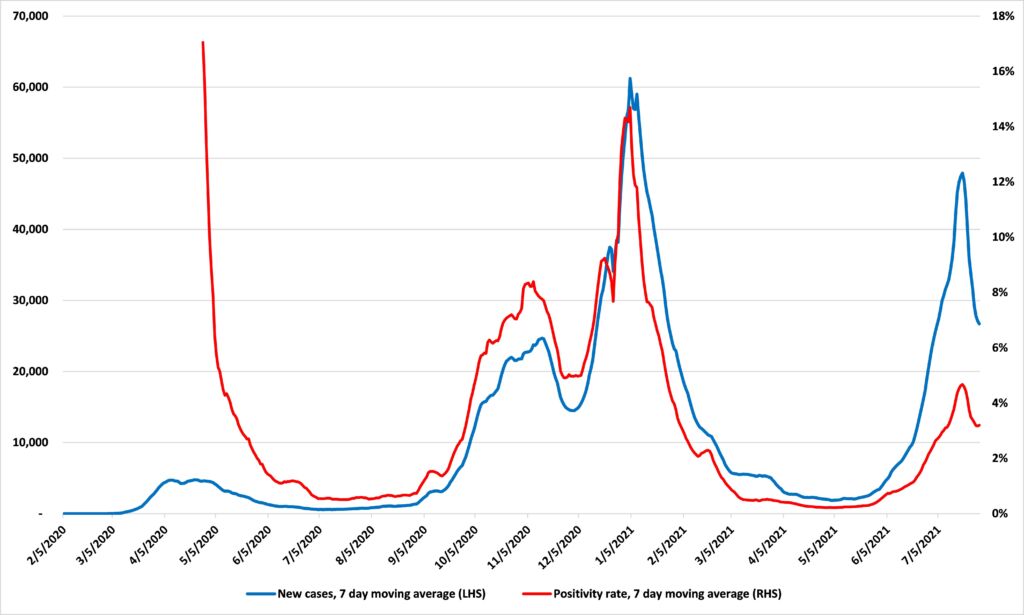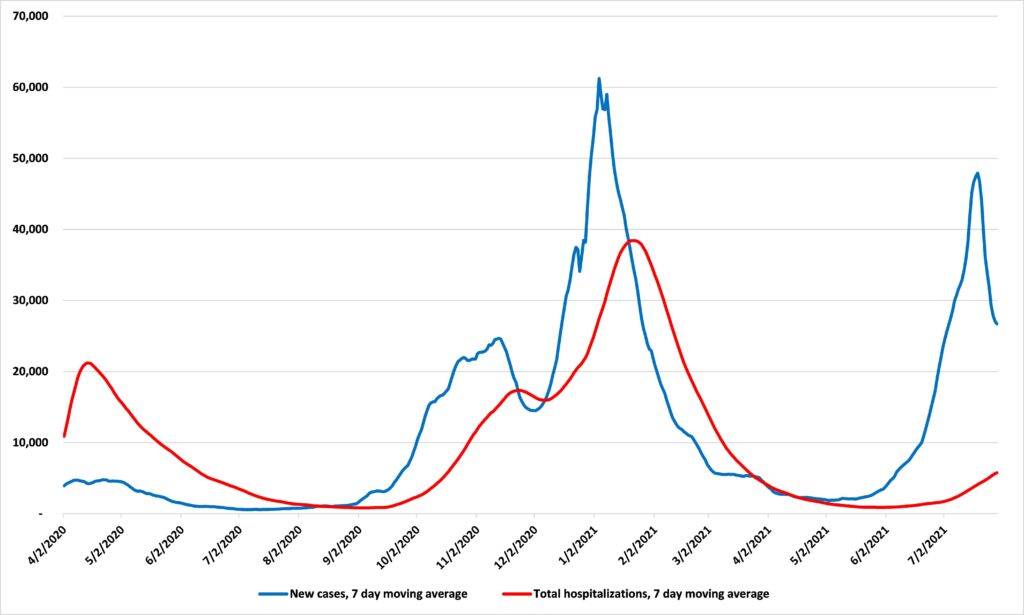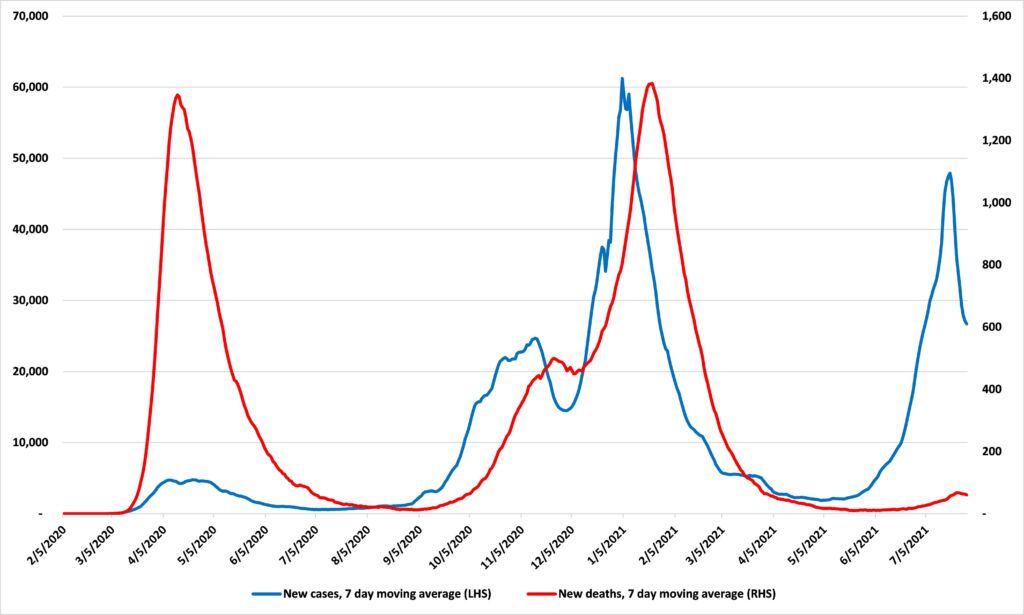The ‘Delta variant’ surge in the United Kingdom
Yesterday I wrote about the the surge of the ‘Delta variant’ of COVID-19 in Minnesota. What might our state be facing in this situation? The recent experience of the United Kingdom could give us some indication.
The surge
The Delta variant was first recorded in the United Kingdom back in April, a couple of months before Minnesota. By late May it was accounting for a majority of newly detected cases and was fueling a surge in new COVID-19 cases, as Figure 1 shows. New cases rose from an average of 1,851 in the seven days up to and including May 3 to 47,913 in the seven days up to and including July 19. Nor, as with Minnesota’s current surge, was this simply a result of more testing. The ratio of positive tests to all tests — the positivity rate — climbed from an average of 0.2 percent in the seven days up to and including May 14 to 4.7 percent in the seven days up to and including July 19.
Figure 1: New cases of COVID-19 in the United Kingdom and positivity rate, seven day moving average

Source: Public Health England
The collapse
July 19 was also the date that the British government lifted almost all of its remaining COVID-19 restrictions. There were dire warnings ahead of this date: ‘Could Britain be sued for reopening and putting the world at risk from new COVID variants?‘ asked Auckland University of Technology Professor of Law Kris Gledhill.
Another look at Figure 1 shows what happened next. From that high of an average of 47,913 in the seven days up to and including July 19, the number for new cases plummeted to an average of 26,704 in the seven days up to and including July 29.
This presents something of a mystery. ‘Surprise dip in UK COVID cases baffles researchers,’ reported Nature magazine. The collapse in cases coincided with the removal of restrictions. This is not to say that the one caused the other — I do not believe it did — but it still begs the question of what did cause COVID-19 cases to slump so fast in Britain.
It clearly was not lockdowns or mask mandates. Britain’s vaccination rate (58.7 percent of the population fully vaccinated as of August 11) is higher than in most other countries, so that might explain some of it, but there was no surge in vaccination at this time which might have accounted for all or even much of it.
No ‘surge’ in hospitalizations or deaths
There is other positive news. As Figure 2 shows, the COVID-19 surge in the United Kingdom in June and early July brought with it a much smaller surge in hospitalizations than previous surges did. Even more striking is the collapse in the ratio of new cases resulting in death in Britain’s ‘Delta variant’ COVID-19 surge compared to previous surges, shown in Figure 3.
Figure 2: New cases of COVID-19 and total COVID-19 hospitalizations in the United Kingdom, seven day moving average

Source: Public Health England
Figure 3: New cases of COVID-19 and total COVID-19 hospitalizations in the United Kingdom, seven day moving average

Source: Public Health England
The British experience of the ‘Delta variant’ shows us two things, both encouraging for Minnesota.
The first is that, while it might be more contagious than previous variants, it is much less severe, as shown by the rates of hospitalization and death being so much lower than previously in this pandemic. This might well be because acute cases of COVID-19 throughout this pandemic have been concentrated to an incredible degree among particular high risk populations, such as the elderly and care home residents, many of whom are now vaccinated.
And, second, it shows that the ‘Delta variant’ can go away without recourse to so-called ‘Non-pharmaceutical interventions’, such as mask mandates and lockdowns.
Don’t be afraid of positive news
The most recent data from the United Kingdom shows that, for now, the precipitous decline in cases might be over or may even be reversing. Both of the above points show, however, that this shouldn’t be a cause for alarm.
Many, it often seems, have become averse to positive news during this pandemic. This makes sense for cable news companies who have seen their viewing figures collapse since President Trump left office and now need something else to attract viewers. But the rest of us should not be afraid of optimism, however cautious. The British experience suggests — so far — that the Delta variant will go of its own accord without recourse to further mask mandates and lockdowns.